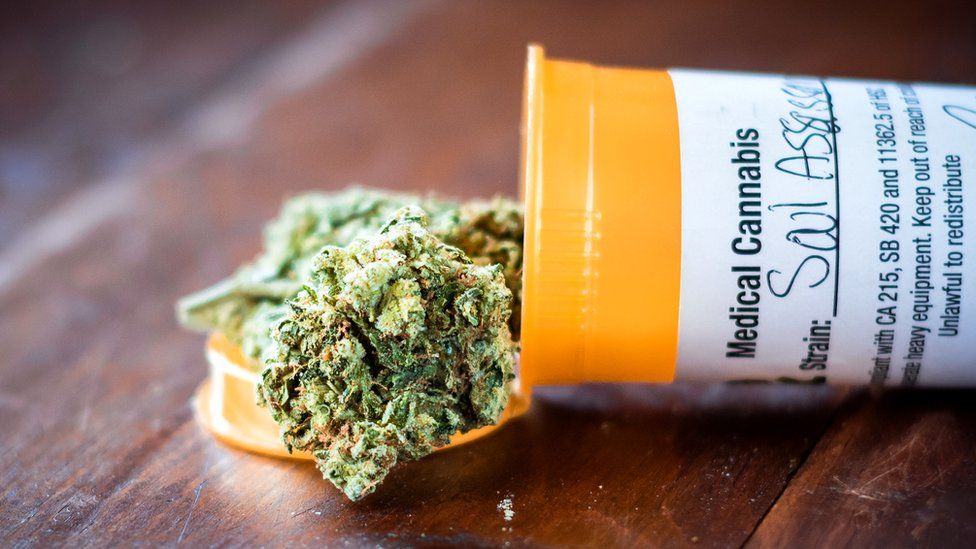Shedding Light on What Medical Cannabis Can Cure: an In-Depth Evaluation of Its Therapeutic Characteristics
In current years, there has been a growing rate of interest in the therapeutic potential of clinical cannabis. While unscientific proof abounds, a comprehensive exam of the scientific information relating to the effectiveness of clinical cannabis in treating these problems is called for.
Persistent Discomfort Monitoring
Persistent pain management continues to be a crucial facet of treatment, necessitating an extensive strategy for effective treatment. In recent years, clinical marijuana has actually become a prospective healing choice for people experiencing persistent pain conditions. The endocannabinoid system, which plays an important role in pain modulation, has been targeted by cannabis-based treatments to relieve symptoms and improve lifestyle for people.
Additionally, clinical marijuana supplies an appealing choice for patients that experience unbearable side effects from typical discomfort medications. Its capacity to attend to pain with a different device makes it a useful enhancement to the collection of therapies available for chronic discomfort monitoring.
Epilepsy Treatment Possible
Medical marijuana has revealed appealing capacity in the therapy of epilepsy, offering an unique therapeutic method for managing seizures in people. Epilepsy is a neurological disorder identified by persistent seizures, impacting people of all ages. Standard treatments for epilepsy consist of antiepileptic medicines, however these medications might not work for all people and can have considerable negative effects.
Research study on using medical cannabis for epilepsy has actually exposed encouraging outcomes. Cannabidiol (CBD), a non-psychoactive compound found in marijuana, has actually been specifically highlighted for its anticonvulsant properties. Studies have actually shown that CBD can reduce the frequency and intensity of seizures in patients with treatment-resistant types of epilepsy, such as Dravet syndrome and Lennox-Gastaut syndrome.
In Addition, the FDA has approved a CBD-based medication, Epidiolex, for the therapy of seizures associated with these extreme kinds of epilepsy. This landmark emphasizes the growing recognition of medical cannabis as an important restorative choice for taking care of epilepsy and provides hope for patients who have not responded well to traditional therapies.
Nausea Relief Benefits
The relief of nausea or vomiting with the use of cannabis has actually been increasingly acknowledged for its therapeutic advantages in numerous medical problems. Nausea and throwing up prevail symptoms experienced by clients going through chemotherapy, those with food poisonings, and individuals with chronic discomfort problems. Medical cannabis, with its energetic compounds such as THC and CBD, has shown guarantee in supplying remedy for nausea.

Furthermore, medical cannabis uses an all-natural option for individuals that do not respond well to conventional anti-nausea medications or who experience extreme negative effects from these medicines. People going through radiation treatment, specifically, have reported significant enhancements in mental health center their lifestyle when making use of marijuana to take care of queasiness. As research study in this field proceeds to grow, clinical marijuana is increasingly being taken into consideration as a valuable alternative for nausea alleviation in different clinical setups.
Anxiousness Reduction Effects
Researches have actually demonstrated the potential of marijuana in minimizing stress and anxiety signs and symptoms through its interaction with the endocannabinoid system. The endocannabinoid system plays a critical function in managing emotions, including anxiousness, by maintaining homeostasis in the body. Cannabinoids in marijuana, such as THC and CBD, interact with the endocannabinoid receptors in the mind, specifically the CB1 and CB2 receptors, to modulate anxiety-related feedbacks.

People with conditions like generalized anxiety disorder (GAD), social anxiety disorder, and post-traumatic here are the findings stress problem (PTSD) may take advantage of the anxiolytic homes of marijuana (Medical Cannabis Card). Nevertheless, further research study is required to establish ideal dosages, shipment techniques, and lasting effects on stress and anxiety monitoring.
Potential for Swelling Control
With its well-known anti-inflammatory homes, cannabis has actually revealed pledge in possibly regulating swelling within the body. Swelling is the body's natural response to injury or infection, yet when it comes to be persistent, it can add to various conditions such as arthritis, inflammatory bowel illness, and even cardiovascular disease. Research suggests that the cannabinoids found in marijuana, such as THC and CBD, can aid regulate the immune response and lower inflammation.
Researches have revealed that cannabis can connect with the endocannabinoid system, which plays an essential function in regulating swelling. By targeting the cannabinoid receptors, marijuana compounds can regulate the immune action, causing a decrease in swelling levels. This makes cannabis a possible prospect for handling inflammatory conditions my link where typical treatments have dropped short.
Additionally, cannabis-derived items like CBD oil have actually gained popularity for their anti-inflammatory residential properties, with several individuals using them as a natural solution for problems connected with swelling. While more study is needed to fully comprehend the mechanisms behind cannabis's anti-inflammatory impacts, present searchings for show encouraging outcomes for the prospective use of medical cannabis in controlling inflammation.
Conclusion
Finally, clinical cannabis has shown encouraging healing properties in handling chronic discomfort, dealing with epilepsy, easing nausea, reducing stress and anxiety, and controlling swelling. Its possible benefits in various medical conditions highlight the value of additional research and expedition right into its medicinal usage. The evidence suggests that medical marijuana can be a beneficial option therapy alternative for clients looking for alleviation from a variety of symptoms and problems.
In recent years, clinical cannabis has arised as a potential therapeutic choice for people experiencing from persistent discomfort conditions.Clinical cannabis has actually revealed encouraging possibility in the therapy of epilepsy, providing an unique healing method for managing seizures in individuals. As research study in this area proceeds to grow, clinical cannabis is progressively being considered as a valuable alternative for nausea alleviation in various clinical setups.
In final thought, medical cannabis has shown promising therapeutic buildings in managing persistent discomfort, treating epilepsy, relieving nausea, lowering anxiety, and regulating swelling. The proof recommends that medical marijuana could be a beneficial alternative therapy choice for people seeking relief from an array of signs and symptoms and conditions.